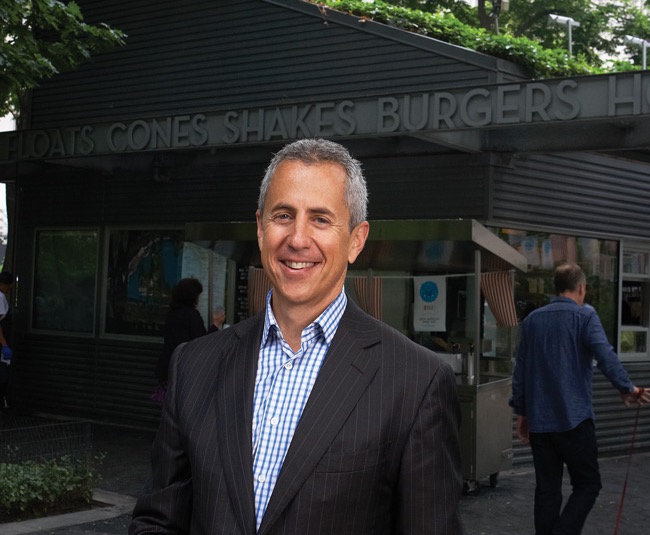Danny Meyer is a well-known restaurateur. He founded Union Square Cafe, Gramercy Tavern, Blue Smoke and Jazz Standard, Shake Shack, The Modern, Cafe 2 and Terrace 5 at MoMA, Maialino, Untitled at the Whitney Museum, Union Square Events, and Hospitality Quotient.
Danny shares some personal and inspirational insights in must-read bestseller "Setting the Table: The Transforming Power of Hospitality in Business".

He takes creating food for guests as a very personal connection. You're not just filling bellies, you're doing so much more.
All these years later, the delights of the table continue to stimulate me as I pursue my career. But what really challenges me to get up and go to work every day, and has also motivated me to write this book, is my deep conviction about the intense human drive to provide and receive hospitality - well beyond the world of restaurants. Within moments of being born, most babies find themselves receiving the first four gifts of life: eye contact, a smile, a hug, and some food. We receive many other gifts in a lifetime, but few can ever surpass those first four. That first time may be the purest "hospitality transaction" we'll ever have, and it's not much of a surprise that we'll crave those gifts for the rest of our lives. I know I do.
My appreciation of the power of hospitality and my desire to harness it have been the greatest contributors to whatever success my restaurants and businesses have had. I've learned how crucially important it is to put hospitality to work, first for the people who work for me and subsequently for all the other people and stakeholders who are in any way affected by our business - in descending order, our guests, community, suppliers, and investors. I call this way of setting priorities "enlightened hospitality." It stands some more traditional business approaches on their head, but it's the foundation of every business decision and every success we've had.
... And the purpose of all this is a product that provides pleasure and that people trust is safe to ingest into their bodies. Also, unlike almost any other manufacturer, you are actually present while the goods are being consumed and experienced, so that you can gauge your customers' reactions in real time. That's pretty complex, emotional stuff.

